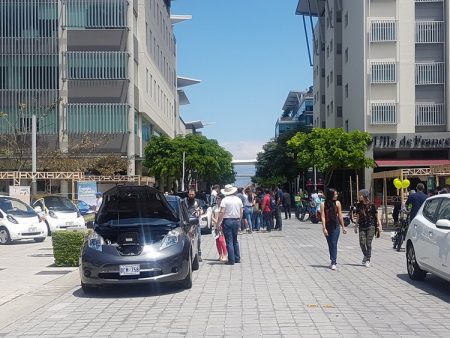July 11, 2018 – The country of Costa Rica has become a second home for my wife and I when we seek out a winter vacation. This coming February will be the fourth year we travel to this tiny Central American republic that is trying to lead by example in becoming a near-zero emission society. Today the country has almost completely rid itself of fossil fuels for energy production. It can do this because it has invested in hydroelectric, geothermal, wind, solar and biomass over the last several decades deriving 99% of the energy used from these sources. Costa Rica has been able to supply all of its energy needs from these sources for as many as 300 days of the year. For a nation of 5 million, classified as a Developing World Country, and no bigger in size than West Virginia, it represents a remarkable accomplishment. They are achieving this on a small budget, a fraction of the dollars that the United States or Canada spend each year on building renewable capacity.
But one sector of the economy continues to be reliant on gasoline and diesel to keep the country moving. Today Costa Rica may have nearly 100% clean energy powering homes and business. But 70% of the energy used by the country is fossil-fuel based to keep things moving. Transportation continues to be 100% fossil fuel based.
In its most recent presidential election, the people voted for a progressive environmentalist, Carlos Alvardo, to be their new president. Alvarado, like most of his citizens, believes in Costa Rica’s conservation paradigm. After all, this is a country that has set aside more than a quarter of its land with the goal to preserve the natural ecosystems. Ecotourism today is Costa Rica’s biggest business.
So the next step in the country’s pursuit of a carbon-free economy is to tackle its fossil fuel reliance in transportation. In a ambitious announcement to mark the country’s upcoming 200th year of independence, Alvarado has set 2021 as the year when cars, trucks, buses, and vans will no longer be operating using fossil fuels.
How realistic is the goal within the next three years? Probably not having been to the country these last three years and seen just how dependent the population is on fossil-fuel based transportation. Nonetheless, Costa Rica Limpia, a local organization headed up by Monica Araya, an economist, and graduate of Yale University, has been given the task to drive the decarbonizing change. Described as a citizen initiative, Limpia faces a steep hill to rid the country of fossil-fuel transportation. How steep? Today, Costa Ricans drive 1.5 million vehicles of which a mere 1,000 are electric-powered models.
To begin the transition, Limpia hopes to rid the country of its diesel buses. Having stayed in San Jose, the capital city, on our most recent visit, the buses are massive contributors to pollution. In 2015, when the private operators of these bus companies were given new contracts, the government had them sign off on new emission standards that exceed those established by the European Union. As far as I can tell from our visit, compliance is non-existent. The buses continuously run their engines at depots even when not being driven. Getting compliance cannot happen soon enough for the city of San Jose where smog hangs over it at midday reminding you of pictures from the Los Angeles Basin a few decades ago.
Limpia hopes that getting the buses to be 100% electric will become the first step in moving the rest of the population to electric cars, trucks and vans. As of February 2018 when we stayed in the capital, little evidence exists of electric buses on city streets. So I suspect that the 2021 date is wishful thinking rather than a reality.
But Costa Rica can institute other policies to help speed the transition from fossil-fuel to electric transportation. There is nothing magical about any of these because they are part of the mix seen in many other countries and include:
- progressive pricing on carbon applied to fossil fuels used in transportation.
- tax rebates on the purchase and leasing of EVs.
- the building of a charge station network across the entire country.
- giving preferential treatment and incentives to manufacturers of vehicles on EV imports.
- a ban on the import of vehicles that use fossil fuels.
My wife and I will be back in Costa Rica in February of 2019, and I hope then to see some signs of progress in the country’s ambitious plan to achieve the fossil-fuel-free transportation sector that President Alvarado seeks. I’ll keep you informed.









